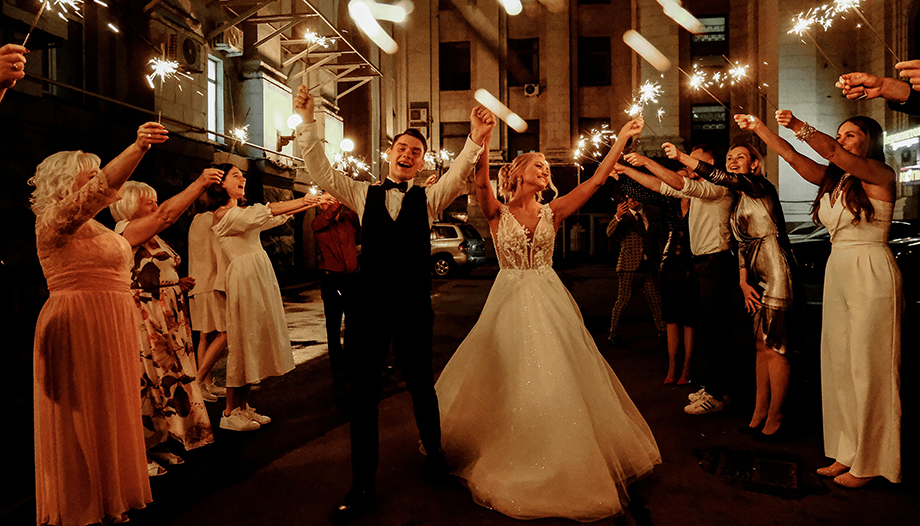The president of the Spanish Episcopal ConferenceMons. Luis Argüelloa few weeks ago, denounced the unreasonableness of making first communions look like weddings. Today I am going to go further: Aren't weddings already an exaggeration?
It is paradoxical that, in an era such as ours, in which the valuation of the marriage institution (with or without sacrament) is in its lowest hours, wedding ceremonies have become events of an uncommon magnitude and complexity. The wedding is, in fact, for some, much more important than the marriage itself.
The mess begins at the so-called bachelor parties, which might have made sense when the bride or groom left their parents' house to start a life together, but most couples today know well what it's like not to sleep at mom and dad's house.
Goodbyes might have their logic when marriage meant giving up living only for oneself to start living for one's spouse and children; but many young married couples continue to hang out with lifelong friends, are open to new love affairs because they do not believe in love forever, and the highest common responsibility they come to assume is to adopt a pet (or several) together.
Does it really make sense to keep calling them bachelor parties when in reality many marriages today are just two singles living together?
As for weddings, they have become an unbridled race for the "me plus". The effect that in the villages led families to compete to see who could best entertain the guests, has been multiplied by the effect of social networks.
Event and catering companies are aware of this human weakness, envy, and inflate prices to exorbitant levels.
Many couples are forced to organize a wedding far beyond their tastes and possibilities to avoid comparisons. It is no longer just the wedding, the dress, the banquet...; it is the most original invitation, the most photogenic church, the funniest pre-wedding, the most decorated car, the most exclusive menu, the best-stocked sweet table, the most curious gift for the guests, the most unforgettable newlywed dance, the most fashionable DJ... Hundreds of details that make couples and their families suffer a lot.
How many people stop getting married for the simple (and logical) reason that today's weddings are crazy!
A wedding with hundreds of guests had a social meaning when what was being celebrated was a fruitful and forever union, since the two families were united by strong ties.
At the wedding, family members and friends would support the bride and groom and even help them financially, as they were still young, to begin their new life together, from which would be born offspring that would extend the family surnames.
But what sense does it make for a couple to invite their family to a ceremony to be paid for by all when the average age of marriage in Spain is around 35, the average length of marriage is 16 and the average number of children is one? And when a family member marries twice or three times? What are we celebrating? Who are we wrapping up? Which of the three parties is the good one and which should be forgotten?
The social character of the wedding has been lost and has given way to a ceremony where the "we" is no longer celebrated, but the cult of the "I" typical of the narcissistic culture in which we live.
Everyone wants to be, even for a day, the baby at the christening, the bride at the wedding and even the dead at the funeral; to be the center of attention, to receive the applause, to have a good photo shoot and to travel to a resort with an all-inclusive bracelet.
The rampage of this generation's self-parties began with birthdays, which ceased to be a simple snack with cousins; followed by graduation ceremonies, even to collect the title of child! continued by the initiation trip to Eurodisney (the communion, let's not fool ourselves, is a mere excuse for many) and, thus, followed a long list of celebrations designed to feel the center of the world.
I am not saying that important things should not be celebrated in style, because it is also very easy to fall into the most stale and stingy puritanism; but to put logic in everything and help, especially, so that no one is left without receiving a sacrament for lack of money or desire to get into trouble (how many children are not baptized because their parents are leaving, leaving...!)
It is urgent to talk more with young people to help them regain their sanity in the celebrations, to make them see that perhaps they should lift their foot off the accelerator that drives them towards the precipice of nothingness and regain the sobriety that gives the wine of the wedding at Cana.
This new wine does not make us drunk or take us away from our reality, but quite the contrary: it makes us savor the true meaning of the celebration and invites us to put on our best clothes to enter the great banquet, the wedding of the lamb, in which, then yes, we will all be the bride at the wedding.
Journalist. Graduate in Communication Sciences and Bachelor in Religious Sciences. He works in the Diocesan Delegation of Media in Malaga. His numerous "threads" on Twitter about faith and daily life have a great popularity.








